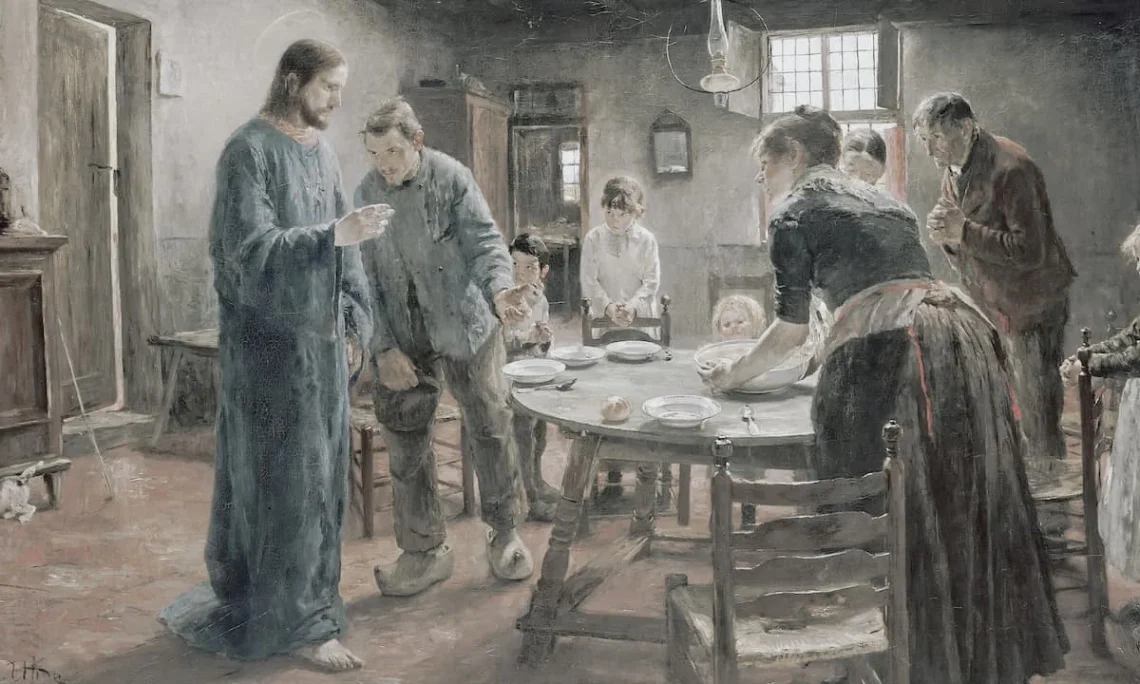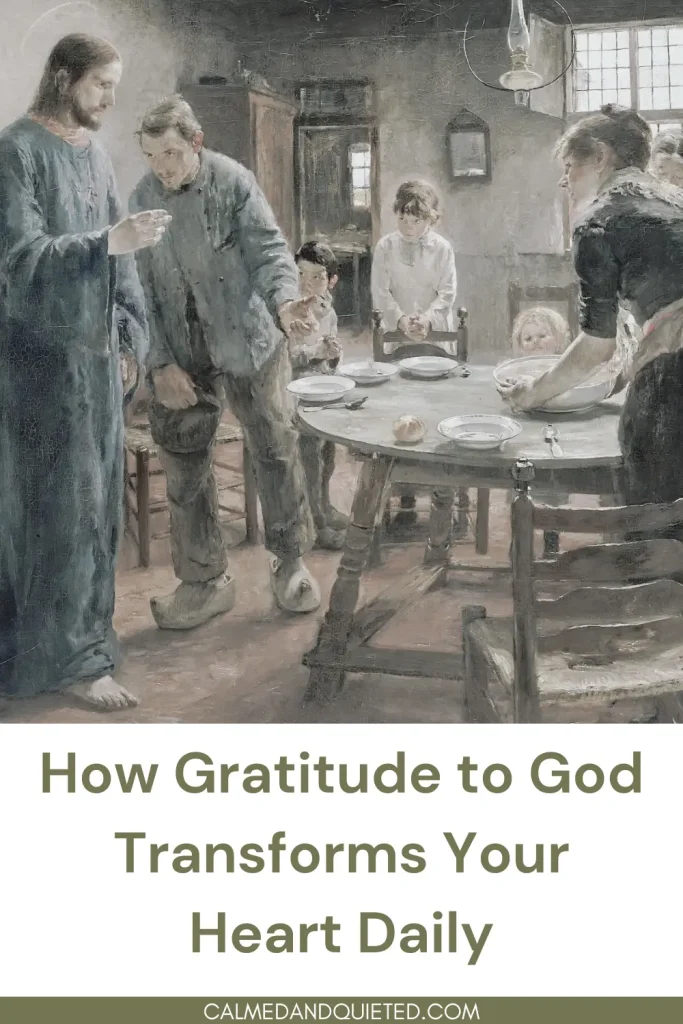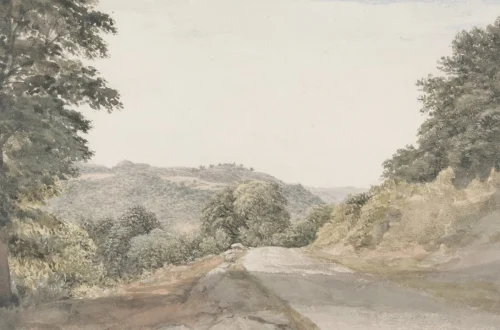
How Gratitude to God Transforms Your Heart Daily
There’s something quietly powerful about waking up and whispering a simple “thank You, God.” No dramatic shift. No lightning bolt moment. Just that small, sincere act of noticing. Of turning your eyes—however weary—to the God of the universe. In a world that constantly demands more, faster, louder… gratitude slows us down. It gently lifts the soul.
Gratitude to God isn’t about pretending life is easy. It’s about choosing to see His steadfast love woven into our daily life, even when things feel heavy. Especially then. Whether it’s catching a glimpse of a beautiful sunset after a hard day or simply having clean water to drink—it all matters. These seemingly small moments become sacred reminders of the goodness of God.
Being a grateful person doesn’t mean you ignore tough times or float through life unbothered. It means you carry an awareness of God’s presence—not just in the good times, but right in the center of your painful situations, too. That’s where transformation begins.
And maybe that’s why it matters so deeply. In this overwhelmed, noisy world, choosing gratitude is a way of tethering our hearts to truth. To the Father of our Lord Jesus Christ, who never changes and never leaves. Gratitude becomes the steady hum beneath the chaos. Not flashy. But real. And lasting.
Gratitude in Scripture: A Faithful Response to God’s Goodness
The Bible isn’t silent about thanksgiving—it sings with it. From the cries of “O Lord, give thanks” in the Psalms to the letters of the New Testament, we’re reminded again and again: gratitude is more than a feeling. It’s a response. A rhythm of the heart tuned to the goodness of God, even when life doesn’t look good.
Take the Apostle Paul, for example. His attitude of gratitude seems almost outrageous at times. Imprisoned, beaten, misunderstood—yet he still wrote about giving thanks in all things. It wasn’t denial; it was deep trust in God’s provision. Gratitude became his anchor, his way of remembering that even in tough situations, eternal life had already been secured. And that changed everything.
Then there’s King David, the poet of praise. His psalms weren’t written from ivory towers—they poured out from caves, from loneliness, from guilt and sorrow. Still, he wrote, “Enter His gates with thanksgiving” (Psalm 100:4). Even when everything fell apart, his soul clung to the power of gratitude as a pathway back to peace.
The Bible invites us to do the same. To say thank You—not only for such things as answered prayers, but even for the breath in our lungs. The kindness of a best friend. The reminder that we are the sheep of His pasture, held close by the Shepherd who sees us. Gratitude grounds us. It heals. And it draws us nearer to the One who gives every good and perfect gift.
The Best Benefits of Daily Gratitude
Gratitude isn’t just a polite response—it’s a daily practice with a powerful impact on every part of who we are. When you make space each day to give God thanks, something shifts. Your heart softens. Your mind steadies. Your spirit breathes a little easier.
On an emotional level, gratitude rewires your inner dialogue. It turns your focus from what’s lacking to what’s already been given. That shift doesn’t erase pain, but it gives it context. Suddenly, instead of spiraling into fear or discouragement, you begin to see slivers of hope. A small answered prayer. A comforting word. A deeper awareness of God’s nearness. These positive thoughts shape your outlook and bring emotional healing—not all at once, but steadily, like sunlight warming a cold room.
The benefits of gratitude reach even deeper. Researchers have found real links between thankfulness and better mental health—less anxiety, lower stress levels, and yes, even a stronger immune system. Gratitude reminds the body that it’s safe, that it’s supported, that not everything is falling apart. And that changes how we carry ourselves in daily life.
But perhaps the most beautiful benefit is spiritual. A thankful heart is fertile ground for spiritual growth. It opens the door to deeper trust, invites the Spirit to speak, and leads us into Scripture with fresh eyes. Some of the most life-giving Bible verses were written by people who practiced gratitude in suffering. Gratitude doesn’t just change how we feel—it changes who we become.
Gratitude During Difficult Times
It’s one thing to be thankful when life is smooth. But when the ground beneath you shifts—when you’re grieving, waiting, or simply exhausted—gratitude can feel out of reach. And yet, this is where its truest strength is revealed. In the thick of tough situations, gratitude becomes a lifeline. Not a denial of pain, but a quiet defiance against despair.
Gratitude in the dark doesn’t shout. It whispers. It clings to small mercies: a phone call at the right time, a verse that feels written just for you, a moment of stillness in a restless night. These things might seem insignificant, but they carry light into the shadows. They remind you that God’s peace is not absent in suffering—it’s just deeper, slower, and often quieter than we expect.
This kind of gratitude is a lens, not a blindfold. It doesn’t ignore grief or fear—it reframes them. It says, “O Lord, I don’t understand this, but I trust that Your grace is still here.” And in that space, the heart opens. Healing begins. Even in painful situations, gratitude teaches us to see life not just as it is, but as it could be through the eyes of eternal life and God’s provision.
Simple Ways to Practice Gratitude Every Day
Gratitude doesn’t have to be grand to be transformative. In fact, the most lasting change often begins with the smallest of habits.
One gentle way to begin is by keeping a gratitude journal. During your quiet time, jot down just three things: moments that brought you peace, people who reminded you of God’s love, or little blessings that made you smile. Over time, these notes become a record of His faithfulness—proof that even in ordinary days, He is near.
Pay attention to the small gifts. A child’s spontaneous hug. A beautiful sunset painting the sky. The warmth of your favorite tea or a meal shared in quiet joy. These are sacred, even if they don’t look like it. They are reminders that God’s presence meets us in the simple, the slow, the overlooked.
And when words feel hard, prayer is still a powerful tool. You don’t need eloquence—just honesty. “Thank You, Lord, for this breath. For this bed. For this moment.” Even one single thing said with sincerity can reshape your whole day. That’s the quiet power of a grateful heart—it multiplies, even when it starts small.
God’s Word and the Practice of Thanksgiving
The Word of God doesn’t just recommend gratitude—it anchors it deep in the heart of the believer’s life. Again and again, Scripture reminds us that giving thanks isn’t just a reaction to good news; it’s part of the will of God.
“Give thanks in all circumstances; for this is God’s will for you in Christ Jesus” (1 Thessalonians 5:18). It’s a striking command. Not for all things, but in all things—because thanksgiving shifts our gaze from the problem to the goodness of God. Gratitude opens our eyes to His mercies that were there all along.
Thanksgiving scriptures like Psalm 100 (“Enter His gates with thanksgiving…”) call us to approach Him not with perfection but with praise. We become like the sheep of His pasture, welcomed into His presence with joy, not performance.
And then there are the songs of praise, the lyrical heartbeats of a grateful people. These aren’t polished recitals—they’re often raw, sung in wilderness places. They reflect the praises of His people, testifying that even when life is heavy, the steadfast love of the Lord never fails.
Gratitude as a Powerful Tool in Your Spiritual Life
Gratitude isn’t passive. It’s a powerful tool that reshapes the soul and softens the heart. When you begin to thank God intentionally, especially when you don’t feel like it, something happens. There’s a quiet drawing near—a pull toward the presence of God that words can’t quite explain.
In moments of prayer, when you sit still and whisper thanks, you’re not just listing blessings—you’re entering into communion. You’re worshiping, much like Mary did, seated at Jesus’ feet, choosing His presence over the pressure of performance.
This kind of gratitude roots your faith deeper. It becomes a rhythm, a posture, a sacred habit. You begin to recognize that you are living each day under the personal care of a Father who sees, who knows, who holds. His hand steadies you, even when the path is uncertain.
Gratitude gently loosens the grip of fear. It says, “I trust You, God, even here.” And that trust—wrapped in thanksgiving—strengthens your spirit for the journey ahead.
Overcoming the Thief of Joy: Confronting the Lack of Gratitude
There’s a quiet danger in forgetting to express gratitude—it creeps in unnoticed, and suddenly, joy feels distant. When we don’t give thanks, especially in the small, ordinary things, we start to believe we’re lacking something. That’s when comparison shows up, whispering that others have more or are doing better. And just like that, joy begins to fade.
Lack of thanksgiving clouds our ability to see through God’s perspective. We become fixated on what’s missing, rather than remembering how God has already provided. The record of God in our own life—His faithfulness, the ways He’s carried us—is easily forgotten in the rush of unmet expectations.
This forgetfulness is more than a memory issue. It’s spiritual. It disconnects us from the grace of God, from the peace that flows when we acknowledge His hand in every season. And when gratitude disappears, we become more vulnerable to discouragement, especially in the dark place, the midst of our pain.
But even here—perhaps especially here—we are invited to remember, to name even one small thing, and give thanks. That tiny act becomes the light that drives the shadows back.
If you’ve been longing to deepen your walk with God but don’t know where to start, you’ll love How to Get Closer to God: A Step-by-Step Biblical Guide. It offers gentle practices and Scripture-based rhythms to nurture intimacy with Him in everyday life.
Gratitude and Community: Leading with Thankfulness
Gratitude isn’t meant to stay quiet. When lived out loud, it shapes the atmosphere of our homes, our churches, and our friendships. Becoming grateful people doesn’t require perfect circumstances—it just calls for a willingness to see God’s hand in the ordinary and speak it out.
In the kitchen, around the dinner table, during bedtime prayers with your children—these are moments to pause and say, “Look what God has done.” And not just in the big wins, but in the tiny mercies: a kind word, a good meal, a quiet moment of rest.
When we share God’s blessings, gratitude multiplies. It encourages others to look up, to remember they’re not alone. A grateful heart overflows, naturally spilling into community. It’s contagious in the best way.
Teaching your children—or your friends—to thank God regularly isn’t about having the right words. It’s about modeling attentiveness. “Did you notice how the sky looked like a painting this morning?” “Let’s thank God for that.” These gentle nudges awaken wonder.
In community, gratitude draws us closer—not only to one another, but to the God who gives every good gift.
Living in God’s Will Through Thanksgiving
Sometimes we ask, “What is God’s will for me?” And Scripture answers plainly: give thanks.
It doesn’t always feel natural. Especially not in hard times, or when we’re wandering through something that feels like a wilderness. But this is where personal growth begins—not from striving, but from surrender. Gratitude is often the first step.
In the wilderness, God’s hand still provides. Manna in the morning, shade in the heat, and guidance by fire at night. These moments might feel small, but they are holy. Giving thanks for them is how we stay anchored.
Gratitude doesn’t erase difficulty—it helps us endure it. It prepares us for the promised land, even when we can’t yet see it. It keeps our hearts soft, expectant, open to joy.
Whether it’s in the good things or the difficult ones, we’re called to honor the Heavenly Father. And thanksgiving is the posture that helps us do that. Not with perfection. But with presence—with faith that says, “You are still good, O Lord, and I trust You.”
Gratitude at the Table: Remembering Jesus’ Example
One of the most profound displays of thankfulness came not during a celebration, but on the eve of great suffering. At the Last Supper, Jesus broke bread, gave thanks, and shared it with His disciples—fully aware of the agony that lay ahead. In that sacred moment, we see that gratitude is not reserved for the good things only, but also for the hard things.
The table became holy ground. A place of surrender. And through His practice of gratitude, Jesus revealed what it means to trust God deeply. To give thanks not because the moment is easy, but because the Father is faithful.
Easter Sunday would bring resurrection, but first there was the cross. And even then, Jesus—the ultimate perfect gift—chose to give thanks.
So, when you sit at your own table, weary from the weight of everyday life, remember His example. Pause. Breathe. Give thanks with intention, even if your heart feels tender or uncertain. You’re not alone in it. His name—the name of the Lord Jesus—still carries peace and purpose.
The Last Thing Before You Sleep: Ending the Day with Gratitude
Something sacred stirs in those final moments before sleep. The day fades, the lists are set aside, and your soul—perhaps weary, perhaps restless—yearns for release.
This is a beautiful time to let gratitude wash over your heart. Reflect on God’s grace, not as a routine task, but as an offering. It doesn’t need to be eloquent. Sometimes all you can say is, “Thank You, Lord,” and that is enough.
Play a soft song of praise. Whisper a quiet prayer. Let your mind trace through even one good moment—a kind word, a warm blanket, a glimpse of beauty. These are not trivial. They are threads of comfort woven into your story by the hand of God.
When we make thanksgiving our final thought, we sleep differently. Freer. Safer. Gratitude loosens the grip of worry and resets our hearts. In fact, it may be the best way to let go of the day’s burdens and lean into trust again.
Choose Gratitude as a Way of Life
Gratitude is not a mood. It’s not dependent on circumstances or clarity. It’s a lens—a way of seeing everything through the light of God’s goodness.
Even when life feels complicated or uncertain, the effects of gratitude ripple through your soul. It softens the edges of the hard things, brings joy into the ordinary, and opens your eyes to the steady care of the Father.
When you feel the tug of lack of thankfulness, pause and ask the Holy Spirit to stir something fresh in your heart. Not forced, but genuine. Small. Real. Because that’s where it begins.
Gratitude is part of His will, woven into the fabric of faith. It doesn’t need fanfare. Just awareness. Just willingness. And it transforms not just moments—but mindsets, relationships, and entire seasons of your life.
PIN ME FOR LATER!

So here’s a quiet invitation: Let God’s gifts—His presence, His mercy, His nearness—shape your tomorrow. And may supernatural peace follow you into every new day.
What is one area of your life where gratitude might change everything today?




